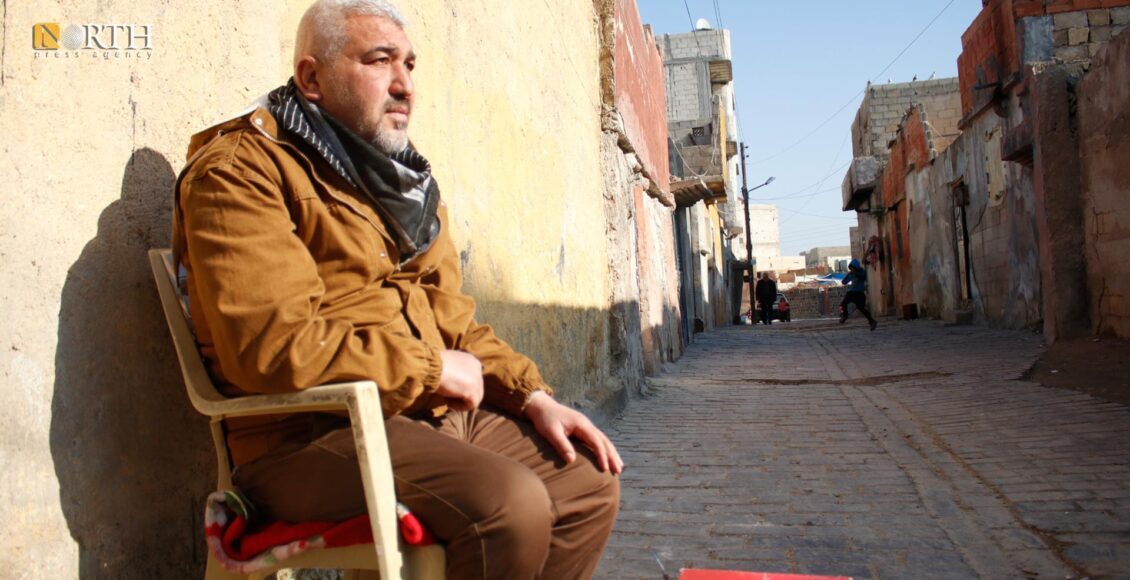Man from Syria’s Kobani refuses leaving his shop despite decline in sales
KOBANI, Syria (North Press) – Despite losing customers and incurring a significant decline in his sales, Fawaz is still sitting in front of his small grocery store, creating his own atmosphere.
Fawaz has a small four-meter square shop which is only a few meters away from the Turkish-Syrian border in the city of Kobani, northern Syria.
In front of his small shop, sits Fawaz al-Darwish, 43, trying to pass time by drinking mate and inviting his neighbors to join him.
Although his customers are few and his business is on the decline, he still does not consider changing his place or shutting down his shop. He clings to the prospect that his customers would come back.
Al-Darwish lived through the war which was launched by the Islamic State (ISIS) on Kobani. The ferocious hostilities and the absence of life in the city at the time pushed him to emigrate to Turkey.
Because of circumstances he went through in Turkey, he found himself forced to move to Erbil. But after the war ended, the homesick pushed him to return again to al-Jamark neighborhood in Kobani city.
Soon later, however, Turkey started threatening to invade the entire region of northern Syria to create a 30-km “safe zone”. Part of these threats materialized after invading the city of Afrin and its countryside in January 2018 and the cities of Tel Abyad and Sere Kanyie (Ras al-Ain) and their countryside in October 2019.
Since May 2022, Turkish President Recep Tayyip Erdogan has repeatedly threatened to launch a cross-border ground military operation against Kobani, Manbij and Tel Rifaat.
The threats have dwindled his customers, some of them emigrated because of the unstable security situation, and others left the city after the frequent Turkish threats to invade it.
On November 20, 2022, the Turkish forces commenced a brutal aerial and ground bombardment against many areas in northern Syria, targeting vital infrastructure and causing casualties among civilians and military personnel of both the Syrian Democratic Forces (SDF) and Syrian government forces.
Neighbors call Fawaz’s shop the grocery that does not fear anything as a kind of a joke, but he finds himself pleased with this designation. He says what motivates him to stay is his work at an institution affiliated to the Autonomous Administration of North and East Syria (AANES) as well as his shop which brings him comfort.
Al-Darwish sells basic and simple needs, with little capital, such as nuts, cigarettes and some food products.
He wishes Turkish threats would stop and war would end. “We are not war advocates; we seek promoting peace, ending wars and halting emigration which has not stopped since 2014.”
The man fears for his children form the repeated Turkish shelling.
Fawaz has not closed his shop for even a day despite the heavy shelling against the city recently. He has made sure each morning to open his shop and heat the water to prepare mate. We have to adapt to this situation “and get used to it, for there is no other solution.”

